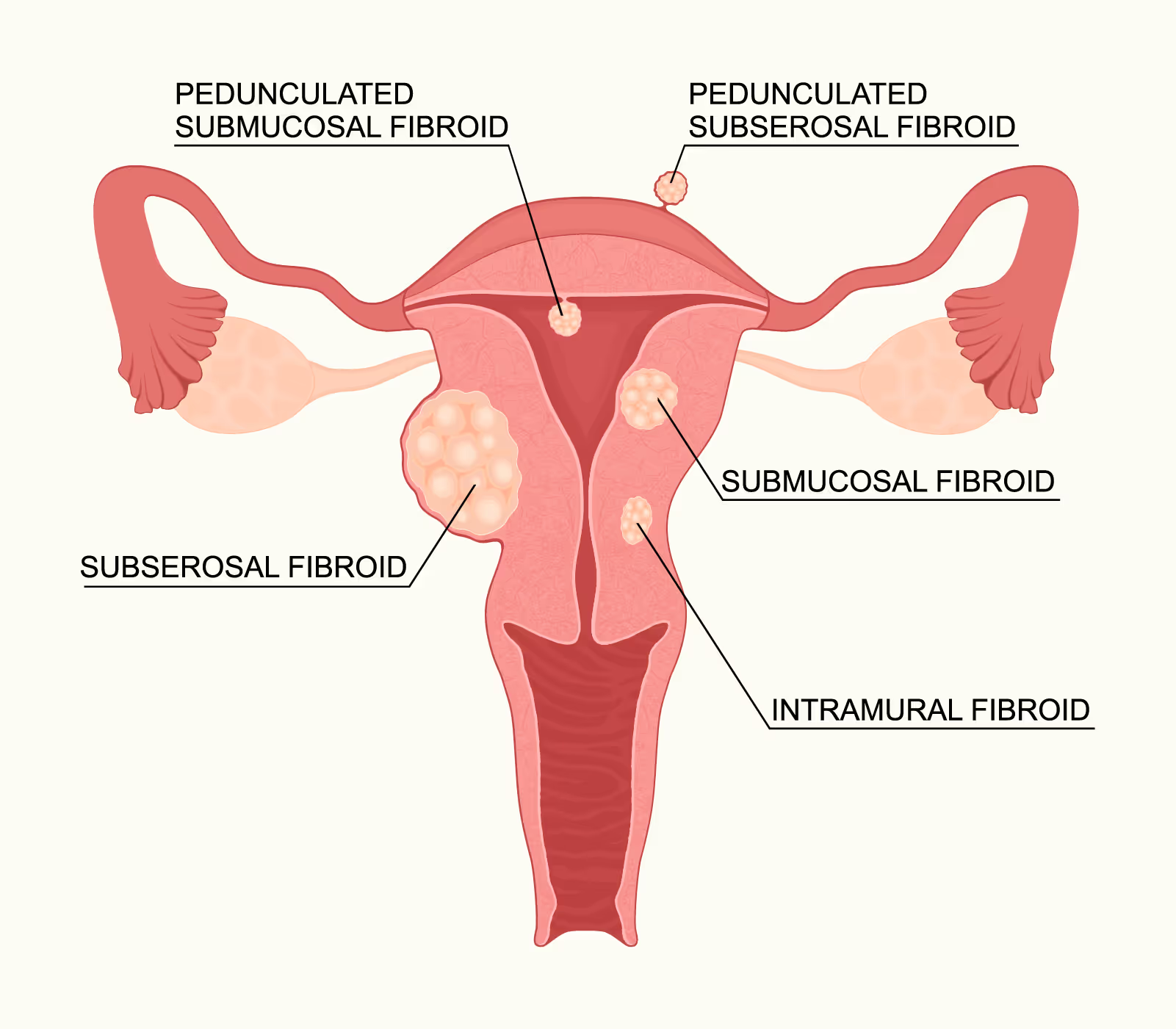Ovarian Cysts

What Is an Ovarian Cyst?
An ovarian cyst is a fluid-filled sac that develops on or inside an ovary. They are extremely common, and the vast majority of women will have one at some point in their lives.
Most ovarian cysts are completely harmless, cause no symptoms, and resolve on their own without any treatment. They are often discovered incidentally during a routine pelvic exam or an ultrasound done for another reason. While the word "cyst" can sound alarming, it's important to know that most are a normal part of the monthly menstrual cycle.
Types of Ovarian Cysts
Ovarian cysts are generally grouped into two main categories:
Functional Cysts: These cysts are directly related to the normal function of your menstrual cycle and are almost always benign.
- Follicular Cysts: Each month, your ovary grows a small sac called a follicle where an egg develops. Normally, this follicle breaks open to release the egg. If it doesn't, it can continue to fill with fluid and form a follicular cyst.
- Corpus Luteum Cysts: After the follicle releases its egg, it transforms into a group of cells called the corpus luteum. If the opening of this sac seals shut, fluid can build up inside, creating a corpus luteum cyst.
Other Benign Cysts: These cysts are not related to the menstrual cycle but are also typically non-cancerous.
- Dermoid Cysts: These fascinating cysts form from reproductive cells and can contain mature tissues like hair, skin, or even teeth.
- Cystadenomas: These develop on the surface of the ovary and are filled with a watery or mucous-like fluid.
- Endometriomas: These cysts are filled with old blood and form as a result of endometriosis.

Common Symptoms
Most ovarian cysts cause no symptoms. When they do, symptoms can include:
- Pelvic pain or a dull ache on one side
- A feeling of fullness, pressure, or bloating in the abdomen
- Pain during intercourse
Severe, sudden pain can be a sign of a cyst rupturing or, more seriously, ovarian torsion which is when a large cyst causes the ovary to twist on its blood supply. This is a medical emergency that requires prompt surgical intervention.
What Are My Treatment Options?
The management of ovarian cysts has changed significantly. Based on strong evidence and guidelines from organizations like the American College of Obstetricians and Gynecologists (ACOG), the focus has shifted away from unnecessary surgery.
- Watchful Waiting: This is now the gold standard approach for simple, asymptomatic cysts in premenopausal women. We now know that the vast majority of these cysts will resolve on their own over one to three menstrual cycles.
- When is Surgery Considered? Surgical intervention is reserved for specific situations:
- Persistent Pain: If a cyst is causing significant, ongoing pain.
- Suspicion of Torsion: If there is concern the ovary has twisted.
- Suspicious Features on Ultrasound: If a cyst is large and complex, with features that raise concern.
- Postmenopausal Patients: New cysts in postmenopausal women are evaluated more carefully.
- Minimally Invasive Surgical Options: When surgery is necessary, it is almost always performed using a minimally invasive approach.
- Laparoscopic Ovarian Cystectomy: This is the standard procedure. The surgeon carefully removes only the cyst, meticulously preserving the healthy ovarian tissue. This is crucial for protecting ovarian function and future fertility.
- Oophorectomy: In some rare cases, such as a very large or suspicious cyst, removal of the entire ovary may be necessary.
Questions to Ask Dr. Kim During Your Visit
- Based on my ultrasound, is my cyst simple or complex?
- Given my age and symptoms, is watchful waiting a safe option for me?
- What are the signs of ovarian torsion I should watch out for?
- If I do need surgery, what is your approach to preserving my ovary?
Why Choose Us?
We provide expert care for fibroids with a focus on:
- You’ll work exclusively with Dr. Kim throughout your journey
- Direct call and text access to Dr. Kim
- We provide expert care for ovarian cysts, following the most current ACOG guidelines to avoid unnecessary procedures.
- When surgery is necessary, we perform advanced laparoscopic cystectomies focused on preserving ovarian function.
Finding out you have an ovarian cyst is very common, and it is natural to feel concerned. However, it is important to know that the overwhelming majority are benign and will go away on their own. The modern, evidence-based approach is to avoid unnecessary surgery and intervention.
By working with a specialist who understands the latest guidelines, you can create a plan that is safe, effective, and prioritizes your long-term health and well-being. Contact us today to learn more about ovarian cyst care and arrange a visit to our Park Ave office based in the Upper East Side, New York City.


